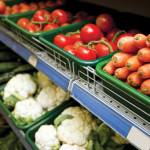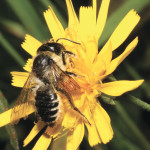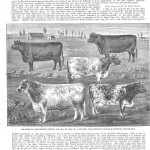Funds to fix up Canada’s agricultural research stations and food safety labs and a new program to boost rural broadband coverage are among the nuggets for the farming sector in Tuesday’s federal budget. Overall, the Liberals’ first budget is based on $287.7 billion in revenues for 2016-17, against $291.4 billion in program expenses and $25.7

Budget to boost ag research infrastructure, rural broadband

Alberta to launch malt barley insurance
Alberta is set to launch Canada’s first crop insurance product for malt barley this year. The province’s Agriculture Financial Services Corp. (AFSC) last week said it will now provide insurance coverage for a malting end-use for growers with malt barley contracts. The coverage is subject to a contract from a licensed buyer, with a minimum

Canada clears Simplot’s spot-resistant GM potato
Potatoes modified for reduced bruising and black spots, and for lower levels of a chemical linked to health risks in baked spuds or fries, have picked up federal approvals. The plant science arm of U.S. potato giant J.R. Simplot announced Monday its first-generation Innate Gen. 1 potato varieties have passed food and feed safety assessments

Liberals pressed on PACA pledge for produce growers
The NDP tables a motion to set up a payment protection system by Sept. 30
The federal opposition New Democrats have cherry-picked a Liberal election promise to fruit and vegetable growers seeking insurance against U.S. and Canadian buyers who dodge their bills. Tracey Ramsey, the NDP’s international trade critic and MP for the southwestern Ontario riding of Essex, on March 8 tabled a motion in the Commons for Canada to

App promises better communication between farmers and beekeepers
Developed in Australia, BeeConnected will aid co-ordination between farmers and beekeepers and keep bees healthy
CropLife Canada and the Canadian Honey Council are teaming up to bring an app to Canada that promises to help bees and crop agriculture coexist. BeeConnected was developed by CropLife Australia and the Australian Honey Bee Industry Council, to allow farmers, beekeepers, and pesticide applicators to collaborate, anonymously, to facilitate best practices to protect pollinators.

Building a better beehive
The University of Manitoba has opened an international competition aimed at giving bees better housing
Wild bees need homes too. That’s the simple idea behind an international design competition opened by the University of Manitoba on Mar. 1. The competition hopes better housing for the beleaguered insects will help address a pressing biological issue — their declining numbers. Bee houses were chosen as the focus of the competition because they

Major grocers pledge cage-free eggs by 2025
The grocery arm of the body for Canadian retailers has rolled out a 10-year plan to source the eggs its members sell from layer hens raised in “cage-free environments.” The grocer members of the Retail Council of Canada (RCC), which include Loblaw, Sobeys/Safeway, Metro and Wal-Mart Canada, said Friday they are “voluntarily committing to the

Nitrates to linger for decades in N-heavy waterways, study finds
Lakes, rivers, streams and well water high in nitrates will stay that way for another 35 years or more, even if farmers in those watersheds were to stop applying nitrogen (N) fertilizer on their fields today, a new study shows. The study of the Mississippi River basin, published Tuesday by Canadian and U.S. researchers, shows

‘Probably the most successful bull ever’
Our History: March 1892
The March 1892 issue of the Nor-West Farmer and Miller featured this artist’s rendering of a champion Shorthorn herd owned by Mr. W.S. Lister of Middlechurch. Each of the animals was described in detail. For example, the bull, Gravesend’s Heir II, was “got by the Cruikshank bull Gravesend, probably the most successful bull ever used

Worker shortfall a three per cent hit for farms: Study
Having the Canadian economy’s highest job vacancy rate has cost the country’s primary ag sector three per cent of its value, new research shows. The Canadian Agricultural Human Resource Council on Tuesday released labour market information (LMI) research which, based on data for 2014, pegged primary agriculture’s annual farm cash receipt losses at $1.5 billion,

